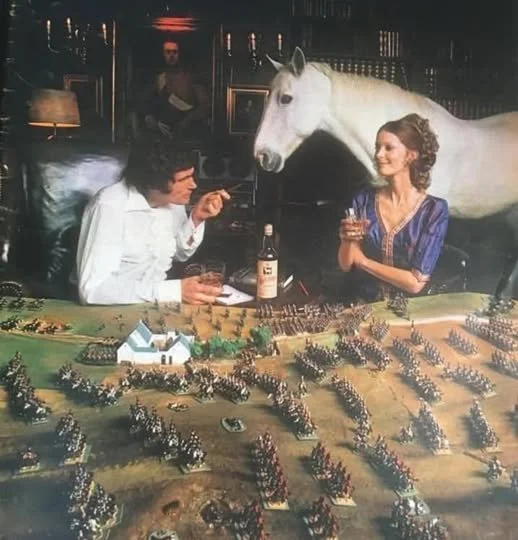IABSM AAR: One Of Our Planes Is Missing
/Fellow Lardy Tony Cane has sent me another IABSM AAR, but this time with a bit of a difference: the game is set on the North West Frontier in the early 1920's.
According to Tony, the mission creep away from pure WW2 is all down to the purchase of Lardie specials. The scenario itself is from the Summer 07 edition, the piece on Mussolini's Baubles is in the Summer 06 edition, and those two combined with his collection of WWI German East Africa war figures and the fact he happened to have Pathans in the lead pile...
One of our Planes is Missing
The scenario, with minor changes to the orbat, follows that printed in the Summer 07 issue of the Lardie special, and uses the Mussolini’s Baubles adaption of IABSM in the Summer 06 edition.
"It's India's North West Frontier, the early 1920’s, and the CO has just asked me to lead a small force for a rush job requested by the RAF. They want a downed plane in the tribal area destroyed, hopefully before it is stripped of useful gear by the locals. This is a bit of a blow as I was looking forward to playing polo tomorrow afternoon!
"A team of engineer types has been provided for the demolition, along with motor transport for the whole force, and even an armoured car has been rustled up. So perhaps if we start early it should be just a case of motoring in, destroying the plane and then back out again. With a bit of luck I may still make the polo match, and then on to the RAF club for free drinks perhaps."
Events were to prove that Lieutenant Harrowell-Clarke was a bit optimistic about how easy things would be.
The local tribe were clearly fired up by the chance to get to grips with the forces that had bombed their village. They basically opted to prevent the enemy from even getting through the pass. First into the breach was a suicidal attempt by a small team to blow up the road as it exited the pass. The fates (cards) were not kind and two volleys from the section advancing on the road block wiped them out before the charges could be set. Still their sacrifice had caused a useful delay.
The Pathan snipers were however proving to be more effective. Repeatedly stalling attempts to remove the road block and actually causing a casualty on the MG team, and forcing it to retire. They were only overcome when chased off by the eventual advance of the Imperial forces.
Pinned down by sniper fire the lead section were not going to clear the road block any time soon.
The remainder of the force was now ordered to outflank the Pathans and, debussing from the transport, started toiling up the steep slopes.
Having organised the HQ section into firing positions on the right flank the commander returned to the troops stalled in the pass and finally got the attack moving and the road block removed.
A second Pathan band had joined those blocking the exit of the pass but caught in the open, the withering fire, of the now effectively deployed Imperial forces soon disposed of them as a fighting force.
With return fire slackening and time running out for the Imperial forces a hasty advance seemed worth the risk. First with the armoured car, then with the troops and transport of the HQ section. With this rapid progress the plane was reached in time (9 out of 12 turns allowed) and destroyed without any further interference from the Pathans. The first platoon moved up the road to cover the village but were not needed.
In the end a glowing report on a mission accomplished could be written by Lieutenant Harrowell-Clarke on the lines of, despite initial difficulties the aircraft was destroyed at the cost of only four casualties to the entire force. Though he probably did not get back in time for the polo match!
Tony Cane























